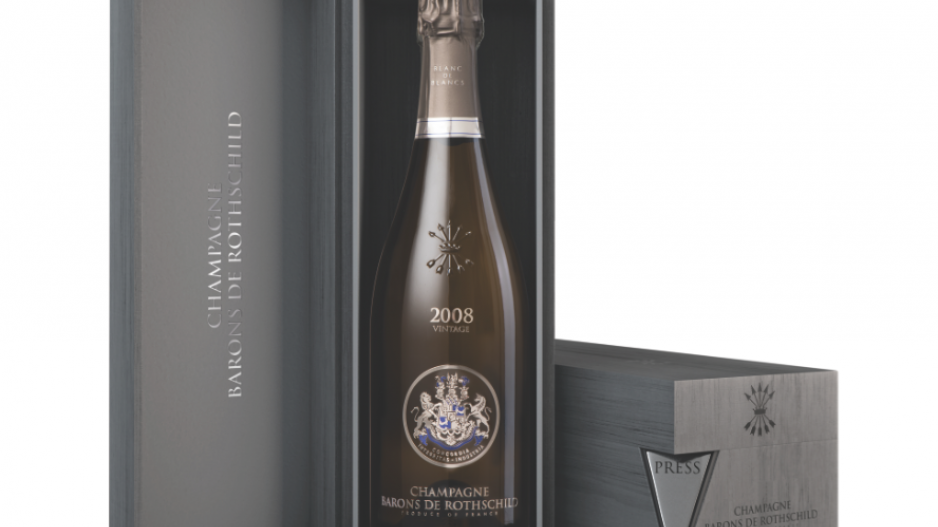Affluent consumers from Asia could be a bigger boon for European wine importers in B.C. than the recently activated free trade agreement between Canada and Europe.
That’s the observation of some local and European wine industry officials, some of whom are now seeking to engage Metro Vancouver’s Asian – or, more specifically, Chinese – customers as a way to sell more upscale products not only in North America, but also eventually in Asia itself.
That’s part of the plan for high-end champagne house Rothschild, which in October landed in Vancouver’s Trump International Hotel to pitch its champagne to Vancouver consumers, while matching the wine with the upscale cuisine found at Mott 32, the hotel’s renowned Chinese restaurant.
Frédéric Mairesse, managing director of France-based Champagne Barons de Rothschild, said he has visited Vancouver three times already in recent years to make further inroads with the city’s wealthy consumers.
Mairesse noted that Vancouver – with its large Chinese population and strong links to Asia – could eventually match Hong Kong as a meeting point of western products and Asian consumers.
“The people in Vancouver are more linked [than Asian cities] to western culture, lifestyle and product trends, but it still has similarly frequent interactions with Asia and its different markets. So the city is ideal for the role of perhaps explaining to Asia what we are as a brand, and maybe serving as another point to enter the [Asian] market.”
Yannick Treffot, who runs Vancouver-based wine importer Cru Terroir Wine+Spirits Ltd., said the growing Chinese demographic in Vancouver – with its correspondingly rising purchasing power – is a key driver for his business, as opposed to the Canada-European Union Comprehensive Economic and Trade Agreement (CETA), which theoretically drops tariff barriers for European wines entering B.C.
“CETA doesn’t help, and most of the producers I work with have no time to deal with the administrative requests on their side,” Treffot said, noting the vast amount of paperwork and red tape that some wine companies have to go through to gain the full benefits of the free trade agreement. “Financially, it is not worth the effort, as it doesn’t bring the price down in B.C. [because the BC Liquor Distribution Branch sets the prices].”
In comparison, while Vancouver’s new Chinese population from the mainland market is new to products like champagne, Treffot said it’s a consumer base that can be introduced to and familiarized with the tastes associated with European products, as opposed to the anglophone mainstream market in B.C., whose tastes have already settled on domestic wines.
“The B.C. wine market is still driven by an English-speaking North American culture,” Treffot said. “[For the Chinese demographic] there is definitely a demand for prestigious appellations as people are getting more educated on European wines.”
That growing sparkling-wine market trend among Vancouver’s newer Chinese population runs opposite to what’s happening in China. Comité Champagne statistics show China, which has an annual market of 1.5 million bottles versus 20 million bottles in the United States, stagnating in its adoption of champagne since hitting a peak of two million bottles in 2012.
Wine industry officials have cited people’s habits – specifically, the preference for warm, non-bubbly drinks – as a key reason for champagne’s slow adoption rate, but Mairesse said Rothschild’s products have succeeded in Shanghai due to its more upscale positioning. He added that he hopes Vancouver’s Chinese population can bring some of their drinking habits into China to slowly shift the balance in that market.
“The China market is small today, but it should be huge in 10 years,” Mairesse said. “Vancouver’s link to Asia is big, too. You have a lot of people travelling from Asia to Vancouver – either for vacation or otherwise – and I’m sure, for Rothschild’s champagne, that Vancouver’s the place to be. Every time I come here, I see a few more selections of house champagne like ours on wine lists. It means that the market has moved a little bit in the last three to four years, and the level of education [on champagne] should get better and better.”
[email protected]



